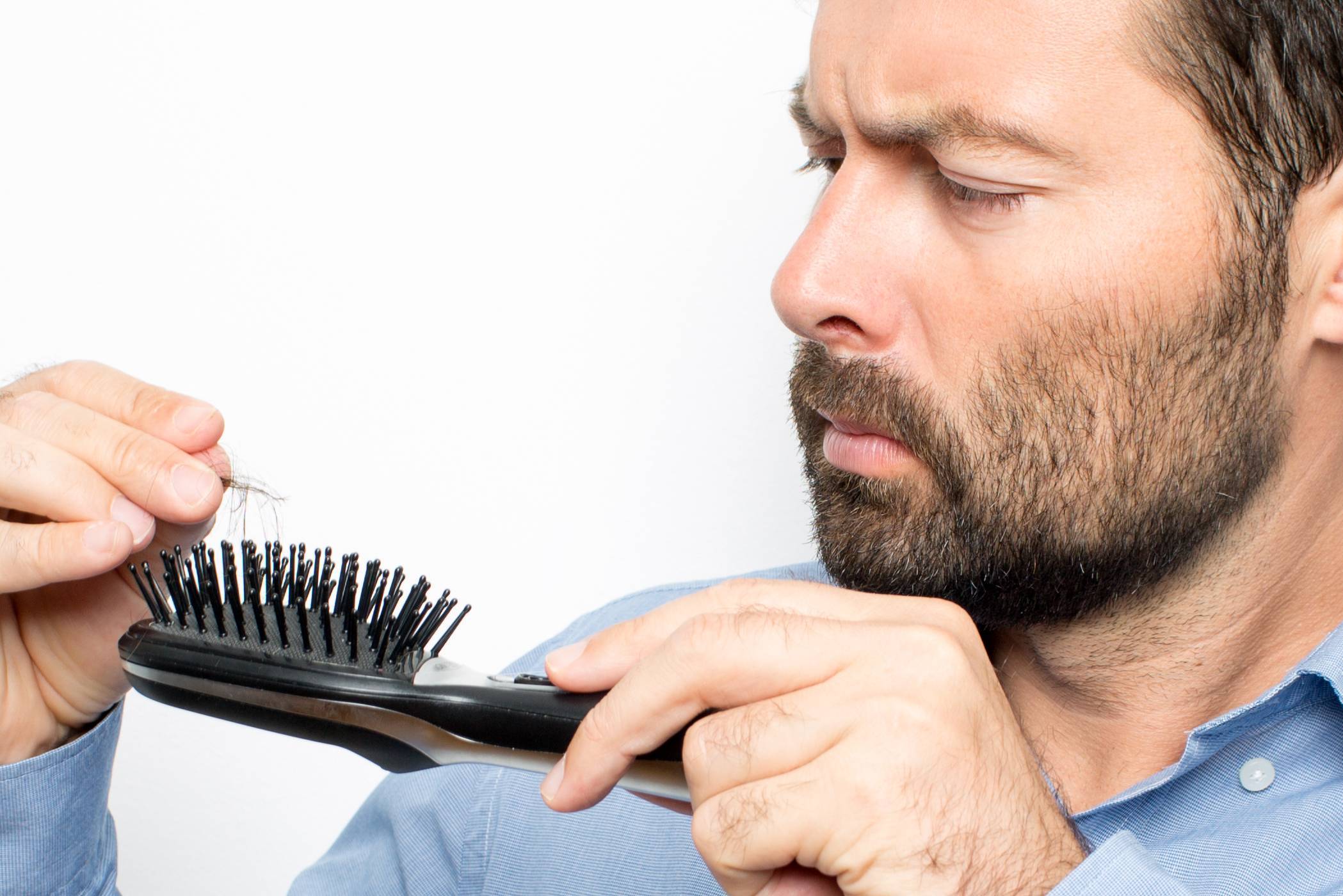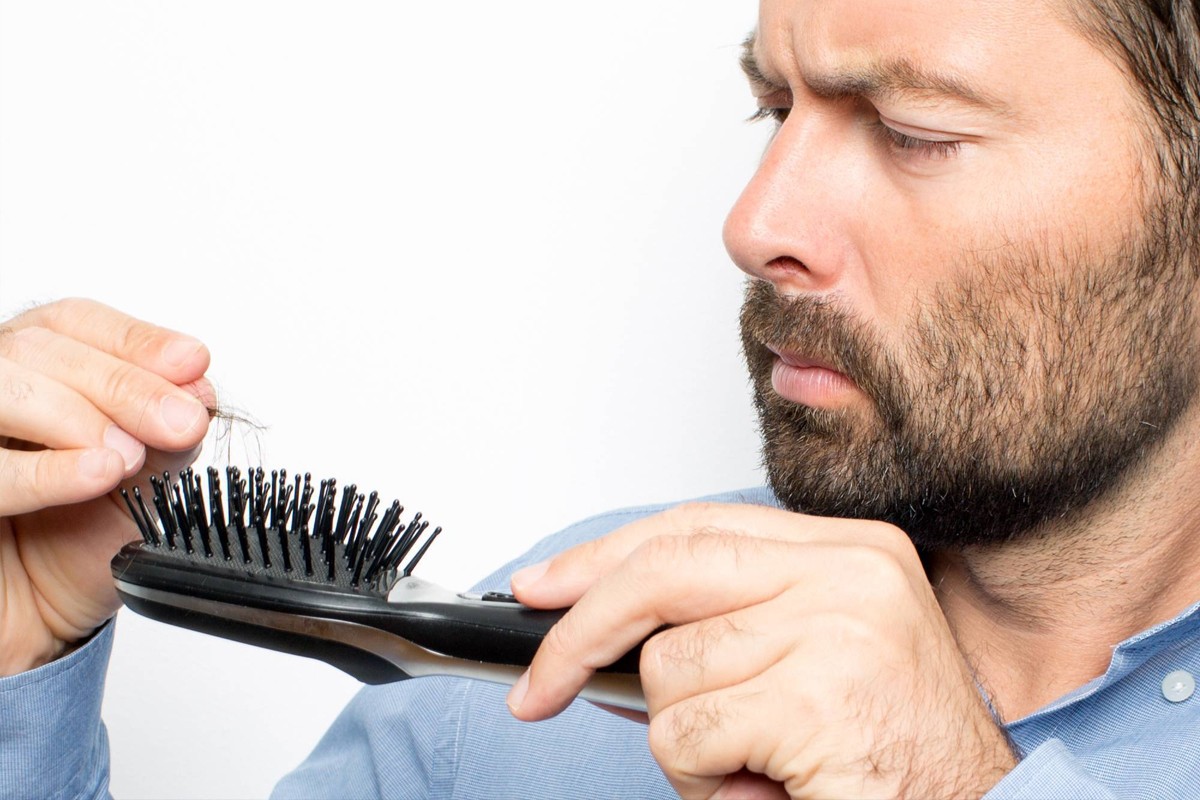Hair loss is very common in males and females after viral infections including COVID-19. All of my patients ask me why and how? To explain the effect of COVID infection then we should talk briefly about the hair cycle. The hair rotates between three cycles:
1-The anagen phase: I think of this phase as the growing phase, hair follicles are healthy and perfectly situated to produce healthy terminal hairs. Terminal hairs are thick and grow long. 80 to 90% of hair follicles are usually in this active phase. This phase usually lasts 1000 days.
During which the average hair growth is 0.3 to 0.4 mm per day or 6 inches per year. But hair is not always in this phase and if it were you would grow hair with unstoppable length. Did you know that the time your hair spends in this cycle varies from one body part to another? Would you like to guess how long Anagen is in eyelashes?
2-The telogen phase is the second phase, I like to think of this stage as the preretirement phase. 5 to 10% of hairs are usually in the telogen phase. This lasts 2 to 3 months. Hair is usually in the resting phase before it sheds and before the cycle repeats itself.
3-The catagen phase is the actual shedding stage. In the grand finale, this retirement stage is fortunately transitional. and not permanent. It is very interesting to mention that microscopically this type of hair follicle detaches itself from its own blood supply and sheds. This cycle lasts 2 to 3 weeks.
Here in the telogen and catagen phase, the hairs are cursed to be shed, only to be replaced by another soldier.
We usually lose up to 100 telogen hair each day and this is considered normal. So as long as can maintain a ratio of 80 -20 we are fine, but the slightest change in this ratio will translate into shedding. This ratio is very finicky and sensitive to the slightest changes in the body and the environment. Whenever the telogen stage steps up its game and starts overpowering anagen you will have a condition called telogen effluvium.
Telogen effluvium can occur with any stress internal or external, and the hair follicles are pretty good sensors. New medications, chronic medical conditions, active infections, trauma, surgeries, emotional stress/duress, pregnancy, and delivery are a few of the many potential causes. But COVID19 related hair loss is one of the leading forms of hair loss in our practice now. Patients cant recognize it easily because it happens a few months after the infection and to complicate the matter more you may have been asymptomatic or marginally sick. So it skips the radar.
Fortunately, this is reversible but creates lots of stress and anxiety for the patient. It can of course present in any age group and in both males and females equally.
It is still very important to get this hair loss evaluated, primarily to exclude other causes and to get professional help with medical recommendations for medical boosters that can break the cycle.
History taking is very important, a thorough review of systems is critical as well and scalp examination is necessary. In my exam, I assess the hair shafts, their number, and the space between them, and I closely examine the scalp. Its been my personal experience that some patients can have coexisting flaking, oiliness, and tenderness as well. That is why it is very important to exclude inflammatory diseases of the scalp and manage any that could be fueling and feeding into hair loss.
Otherwise, my test of choice is called the pull test. And its full form by exerting a gentle tug on a small section of hairs from different parts of the scalp.
The patient should not wash their hair for at least one to two days and should not brush their hair prior to the examination. The patient might collect hairs lost in the shower or on their pillow in bed or from hairs pulled during brushing and bring them to the office for further examination.
Some of my patients have not had thorough blood works for a long time or come in with basic blood works unrelated to the specifics of hair loss.
Our perspective as medical experts and hair specialists is important.
In my practice patients who had been infected with COVID-19 and have hair loss usually present with anxiety and depression, they are usually eager for an action plan. This can definitely leave patients that have a family history of genetic hair loss unsettled. When you add telogen effluvium to androgenetic alopecia, you got yourself a huge punch.
We are an advocate of trying our best to reverse this process and we are your advocates too.
We have very effective medical recommendations for topicals, shampoo, and supplements. If the patient is more motivated we can discuss Blood Growth Factors injections. This contains many growth factors that are important for the hairs it will increase blood supply to her follicles and might speed up recovery but again hair loss caused by COVID-19 infection reverses itself without any intervention.
Hair loss can cause anxiety. Depression may lead to suicidal ideation, there are even reports of suicide due to hair loss we as clinicians must take this issue very seriously and do whatever we can to assure the patients with this unfortunate disorder. We understand how much hair loss can knock down your self-esteem and your confidence and are here to help restore both.





 Free Transplant Consult
Free Transplant Consult



